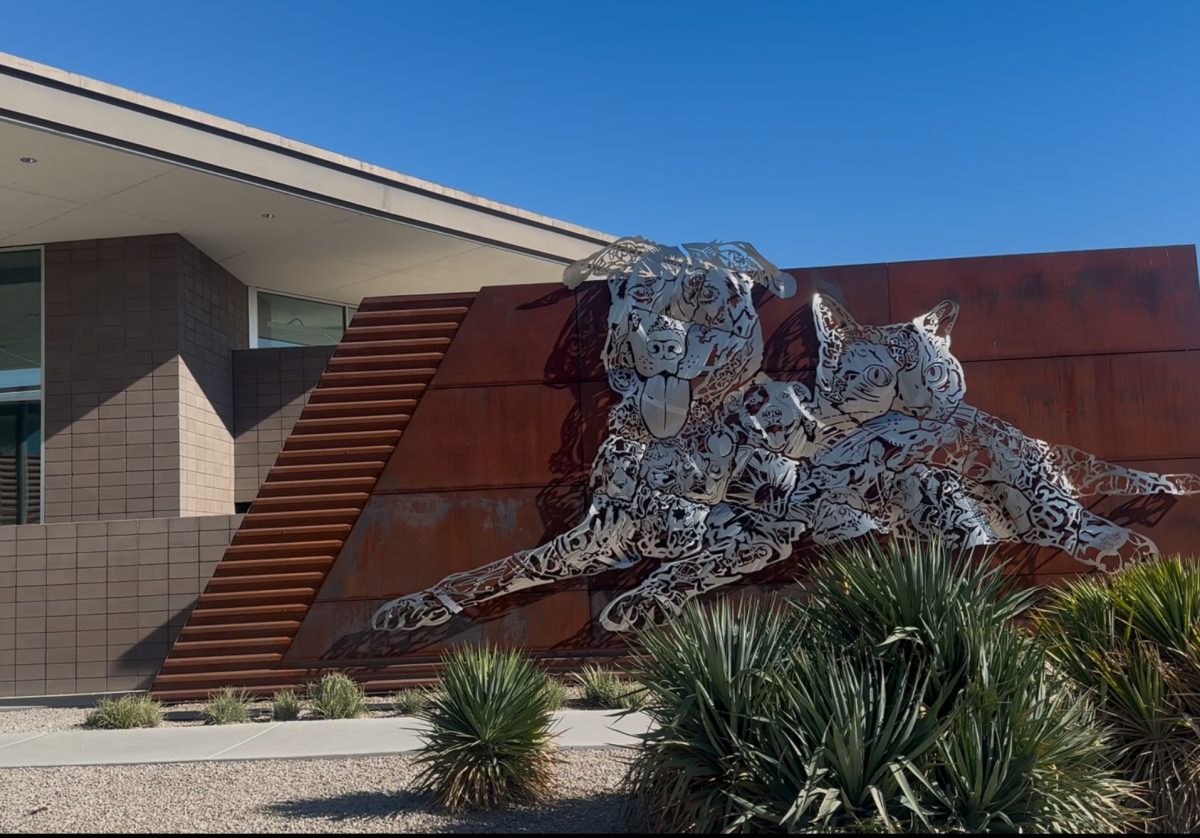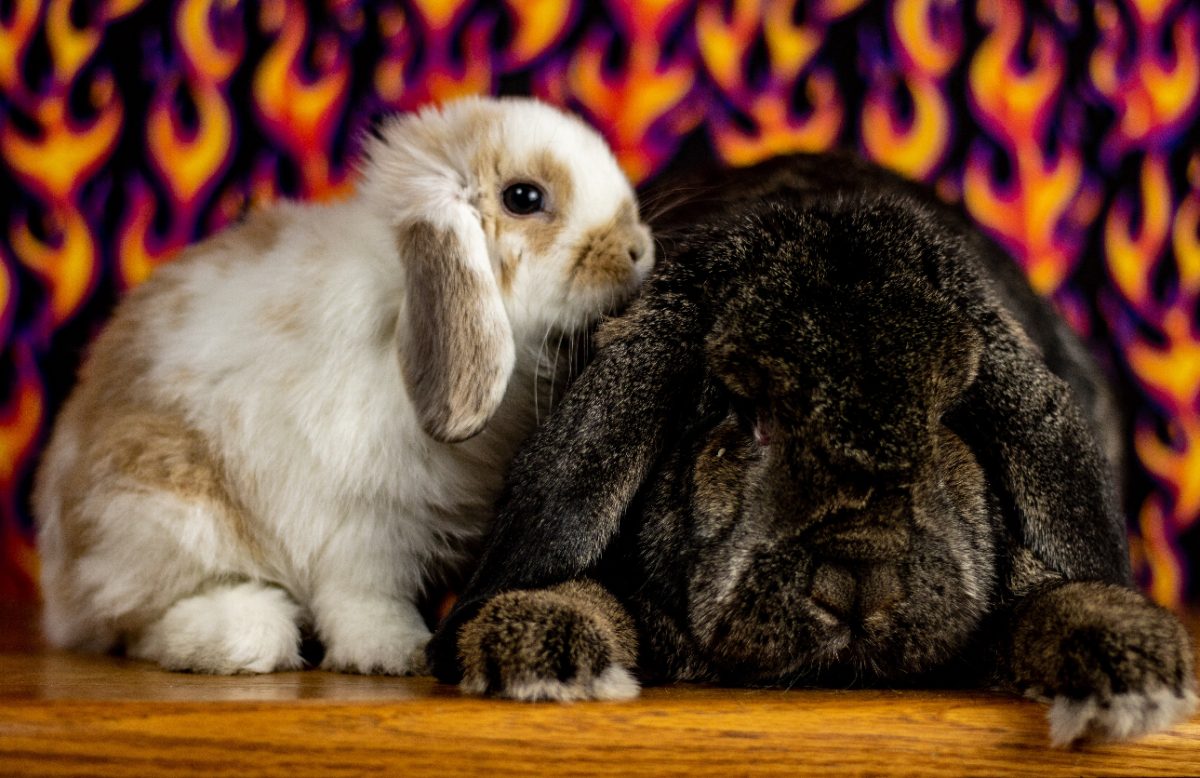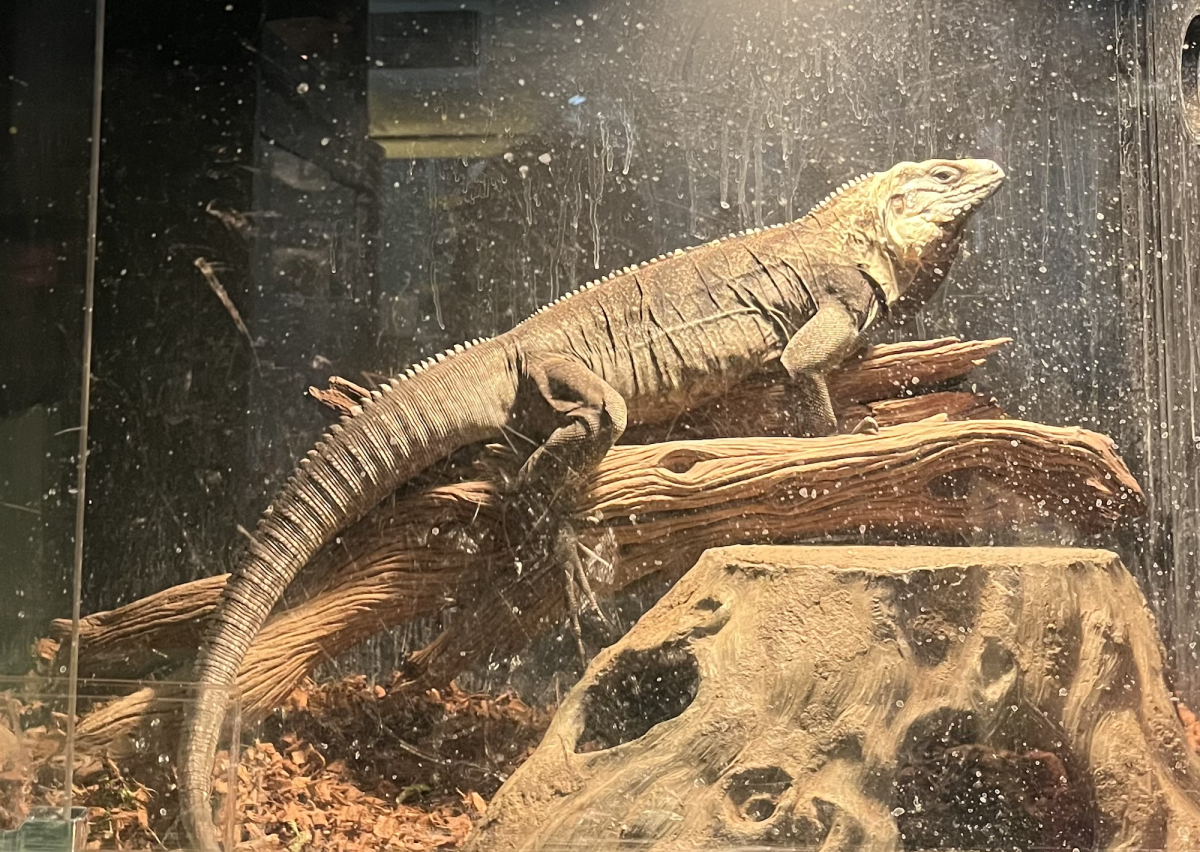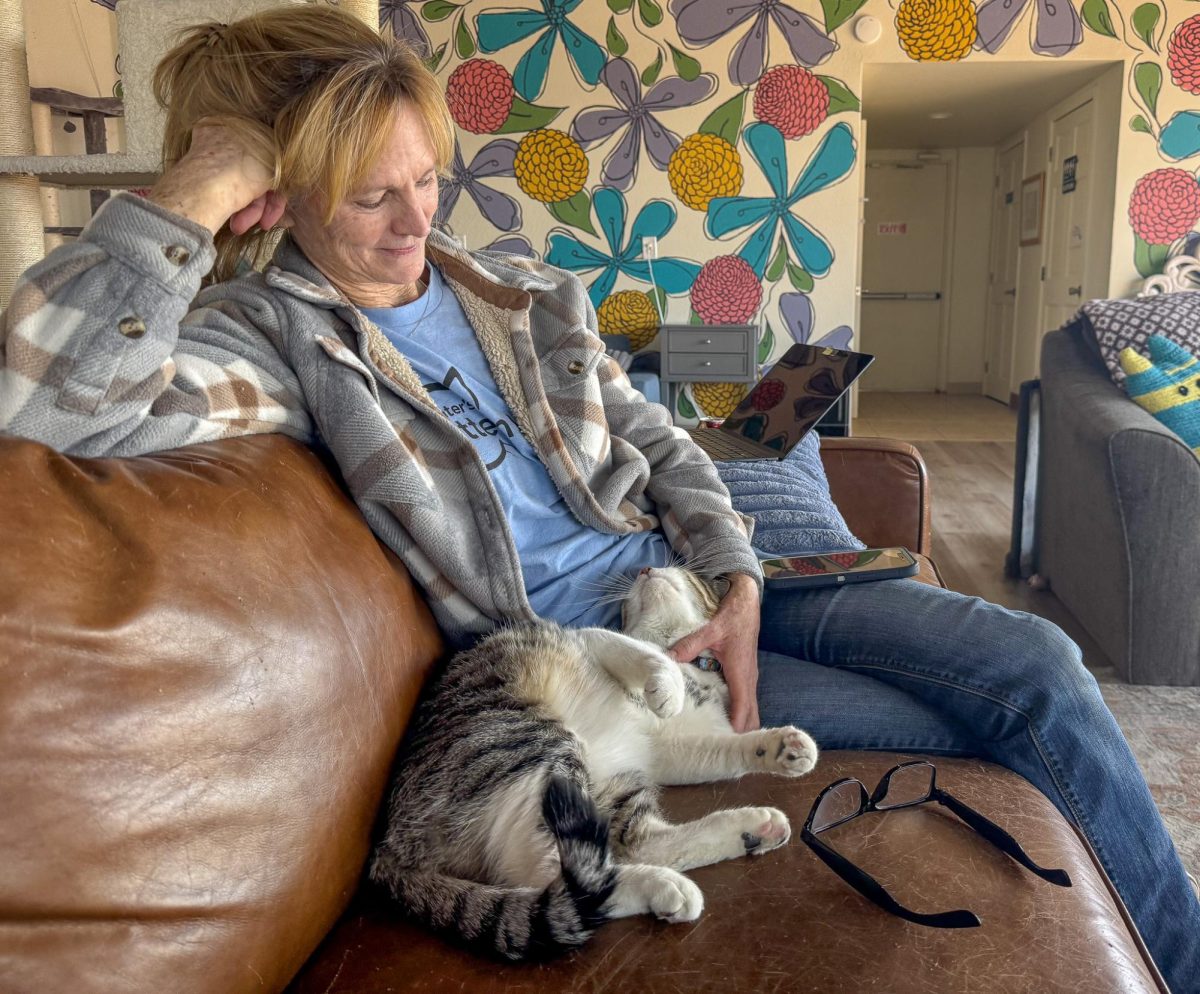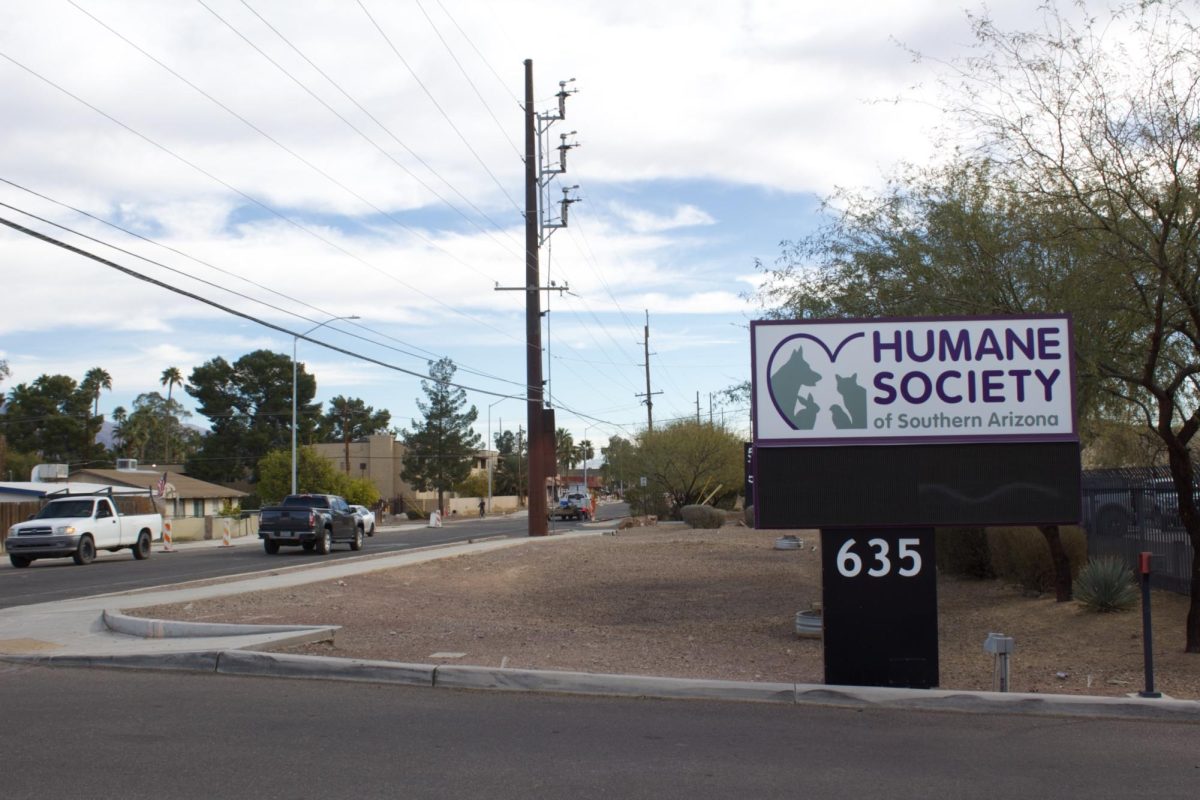As an overwhelming number of animals continue to flood shelters in Tucson, local organizations are stepping up to address the issue and support the animals in need.
The Pima Animal Care Center, or PACC, is Tucson’s largest open-admission shelter, which means they take in any animal surrendered to the shelter. However, PACC’s shelters have been at critical capacity since 2021.
“We’ve been above capacity pretty much year round. We saw our population dip down significantly during the COVID-19 pandemic, but we started to see it go back up and have been struggling with capacity since then,” said Kayleigh Murdock, public information officer of PACC.
The shelter has capacity for up to 400 animals, but is constantly exceeding the number, she said.

A wall with names of supporters and foundations who have supported Friends of PACC is displayed in the lobby of the Pima Animal Care Center on December 9, 2024.
In response, PACC has partnered with Friends of PACC, a nonprofit dedicated to organizing events and fundraisers for PACC. They helped PACC keep dogs at the shelter comfortable and created a spay and neuter program to prevent animals from ending up there. Their mission is to return animals to loving owners or help them find forever homes.
“Friends of PACC has been absolutely critical to our lifesaving efforts here at the shelter as well as improving the lives of pets and people in our community,” Murdock said. “We would not be able to save as many lives as we do, nor impact the number of animals and people without them.”
Some 19,000 animals come through PACC every year, said Torre Chisholm, Friends of PACC executive director. “Friends of PACC supports each and every one of them in some capacity.”
Not only does the organization support animals in shelters, they also assist the community in finding lost animals. They have helped roughly 30,000 animals return to their owners and homes since 2016.
Chisholm said the group tries to address the challenges that might cause pet owners to surrender animals to a shelter, like financial strain or changing family dynamics.
“In the big picture, we establish a communal environment that’s supportive of companion animals,” he said.
Friends of PACC recently teamed up with Rollies, a local taco shop, which created menu items that donate a portion of proceeds to PACC. They include a Great Dane sampler for $24, with $4 going to Friends of PACC, and a Chihuahua plate for $12, $2 of which is donated to PACC.
“We’ve already raised over $1,000 in just over four weeks,” said Angela Palma, co-owner of Rollies. “Our customers love it.”
She said Rollies decided to join other local restaurants supporting PACC, including La Estrella Bakery and El Güero Canelo, because it helps raise community awareness about the issues facing shelter animals.
“We’ve gotten lots of positive feedback from members of the community and PACC themselves. It’s so great seeing people come together to support PACC,” Palma said.
On April 1, Friends of PACC participated in Arizona Gives Day, which raised more than $90,000 in funds for future initiatives at the shelter. Those include The Dog Play Yard Project, a new play area for dogs at PACC, and the Trap/Neuter/Return (TNR) program, aimed at reducing the number of cats at the shelter and improving the health of outdoor community cats.
Friends of PACC is also constructing a clinic to support the medical needs of animals. It is expected to serve 8,000 to 10,000 families and their pets every year.
“We are excited for that growth,” Chisholm said. “We are excited to celebrate it and to tell the community about this amazing new resource to make sure their pets are taken care of.”
To learn more about Friends of PACC and donate to them, visit their website.

A Friends of PACC Honor Wall is displayed next to the dog play area at the Pima Animal Care Center on December 9, 2024. Each collar tag represents a pet who has passed away.
Arizona Sonoran News is a news service of the University of Arizona School of Journalism.



